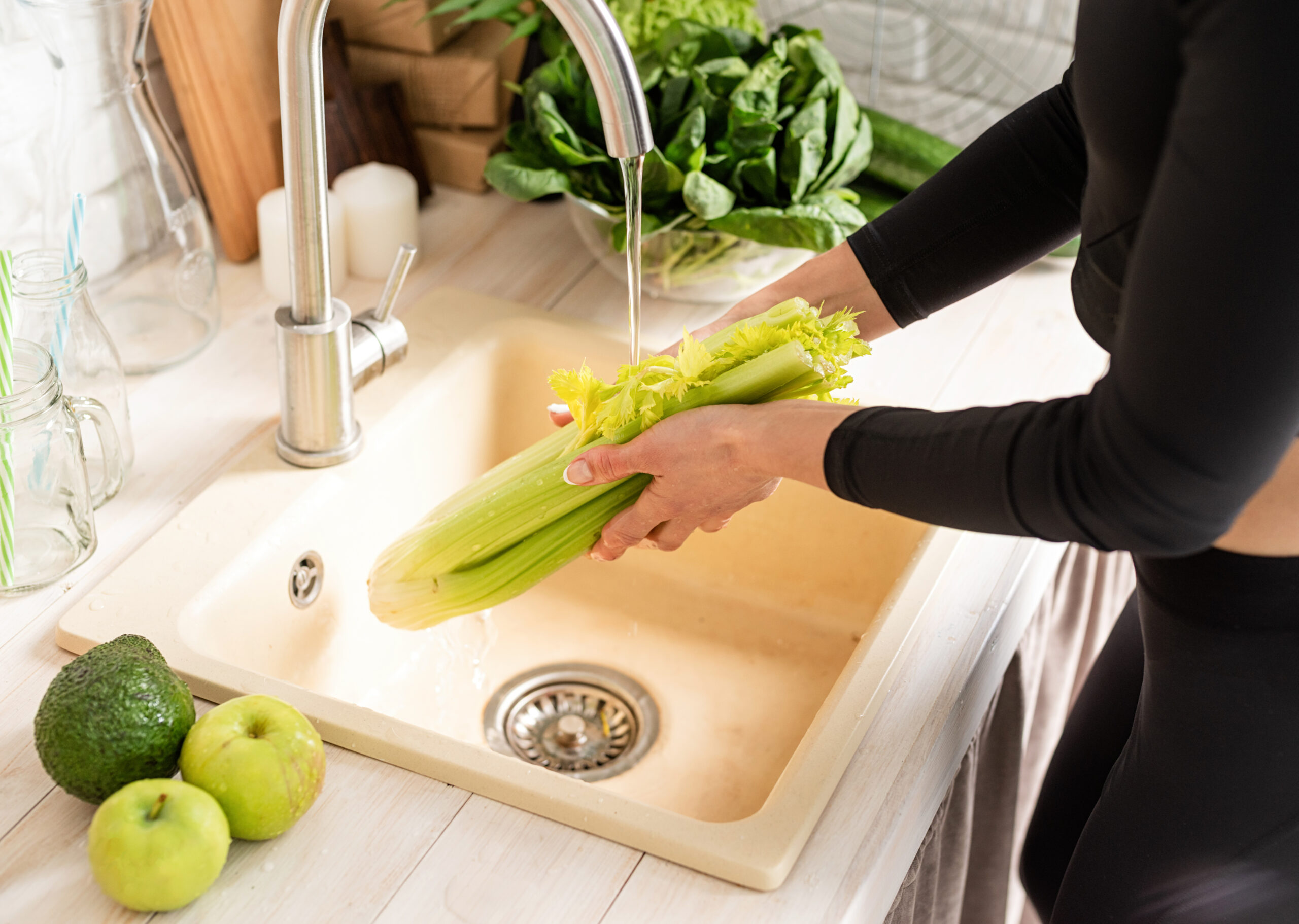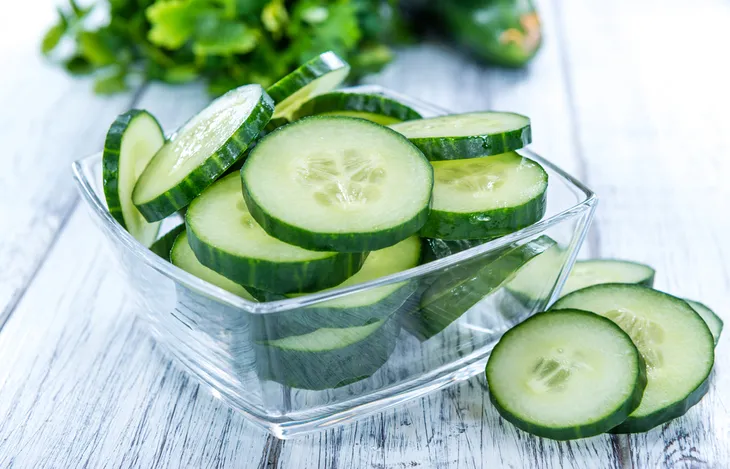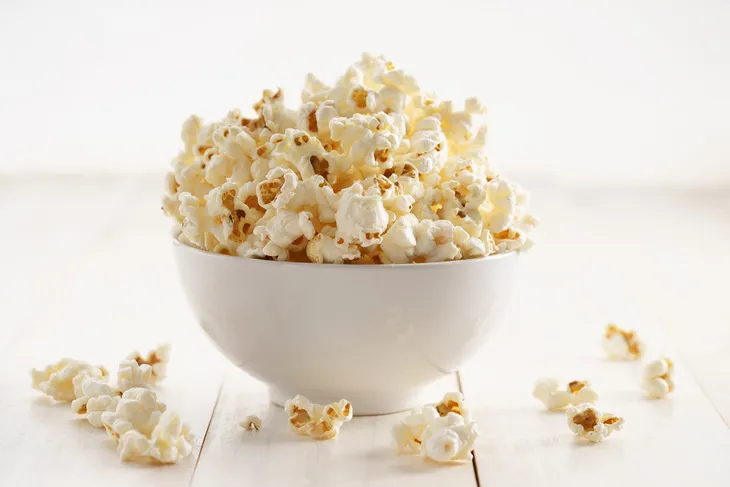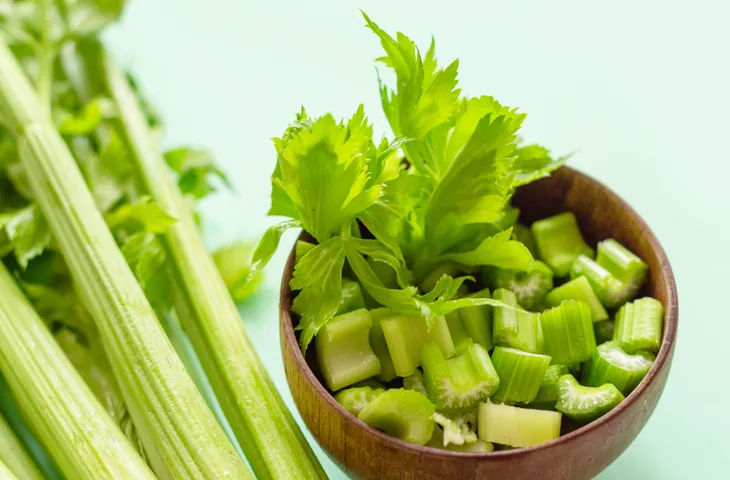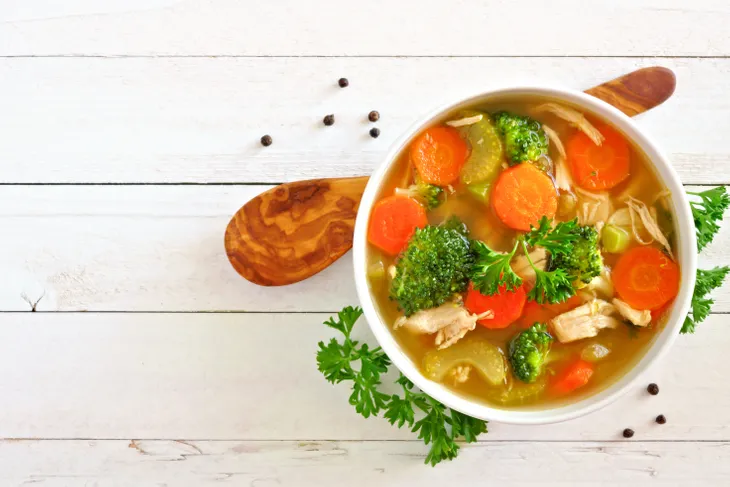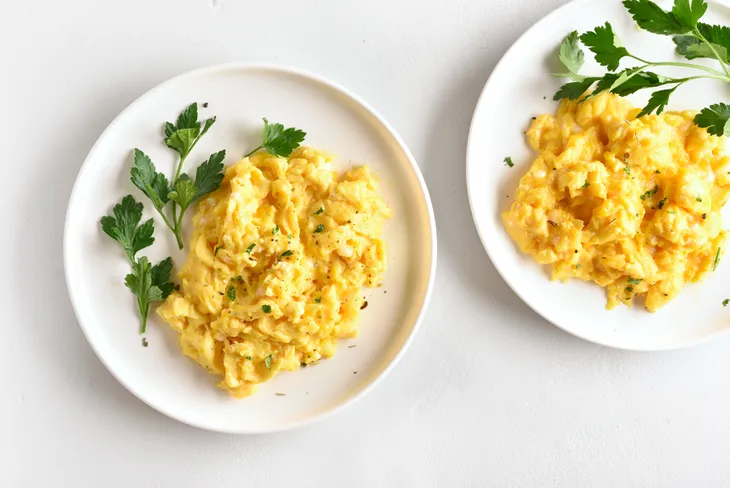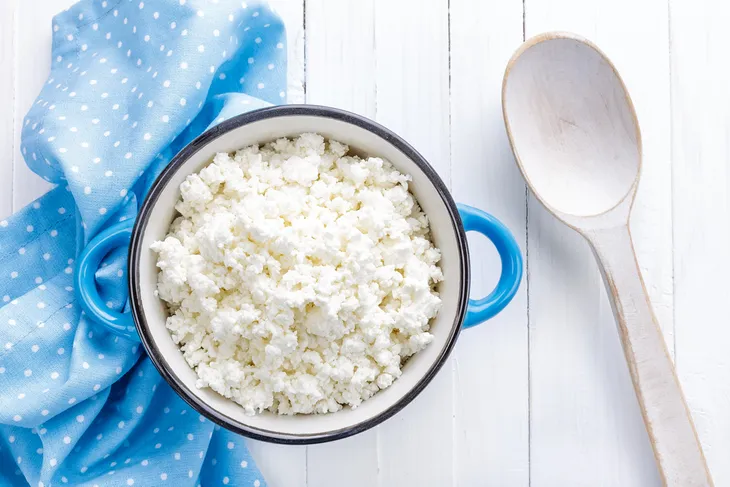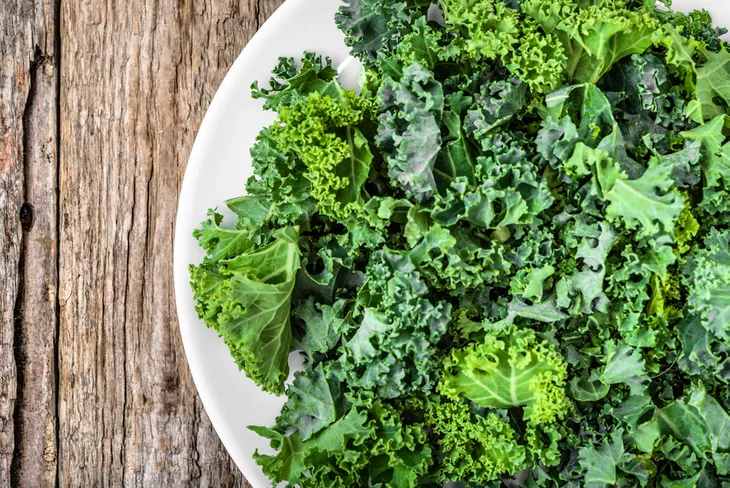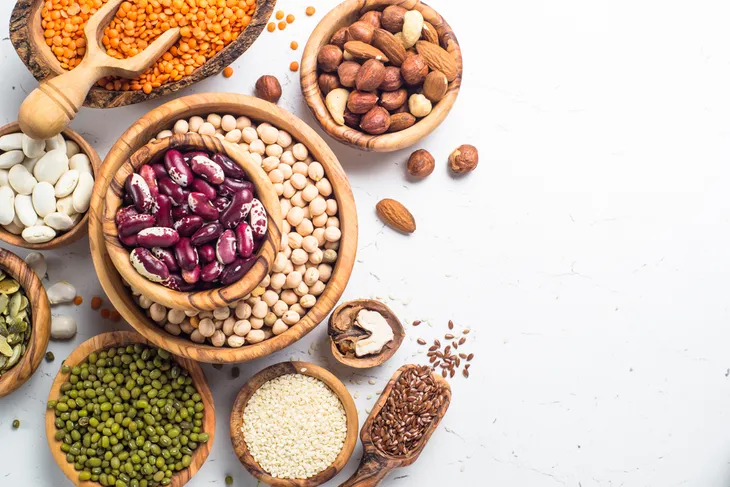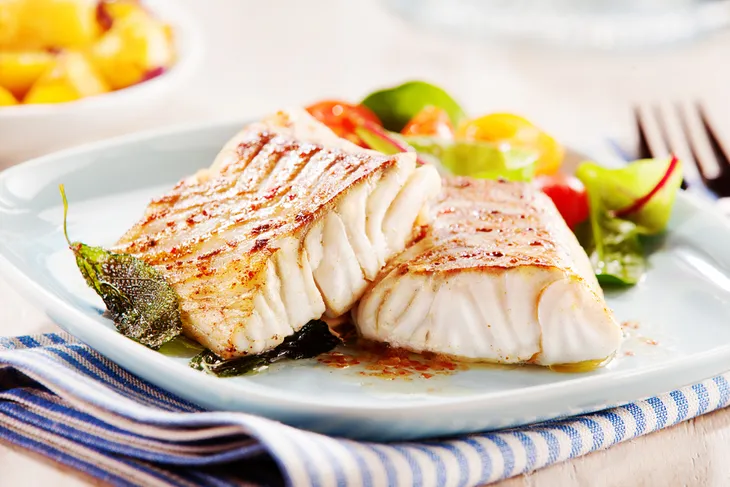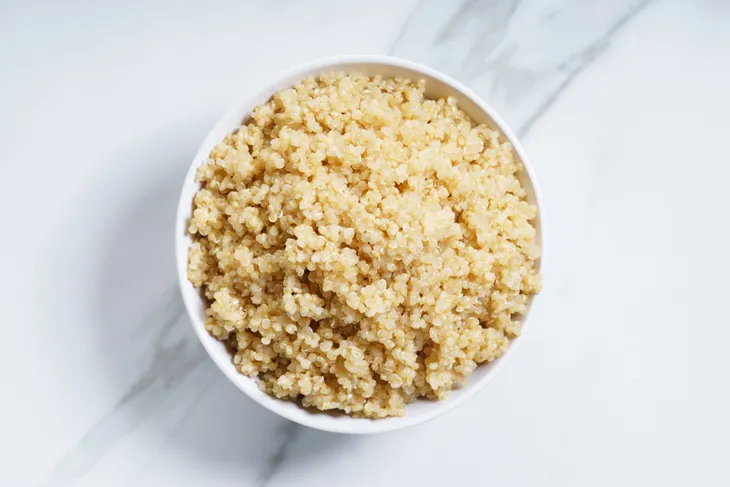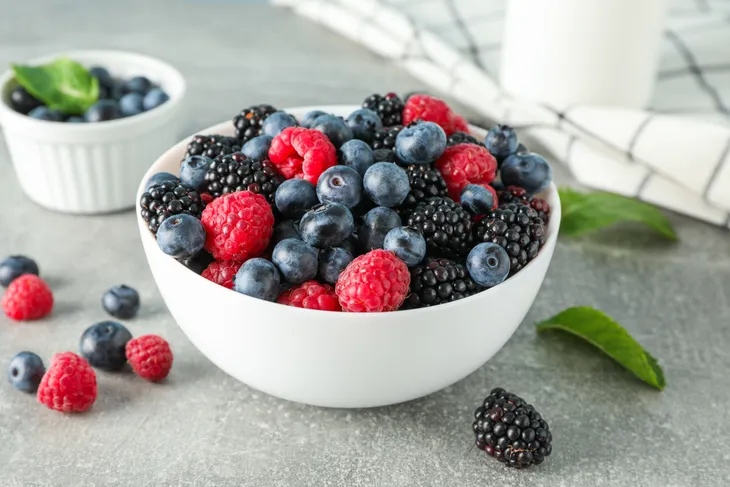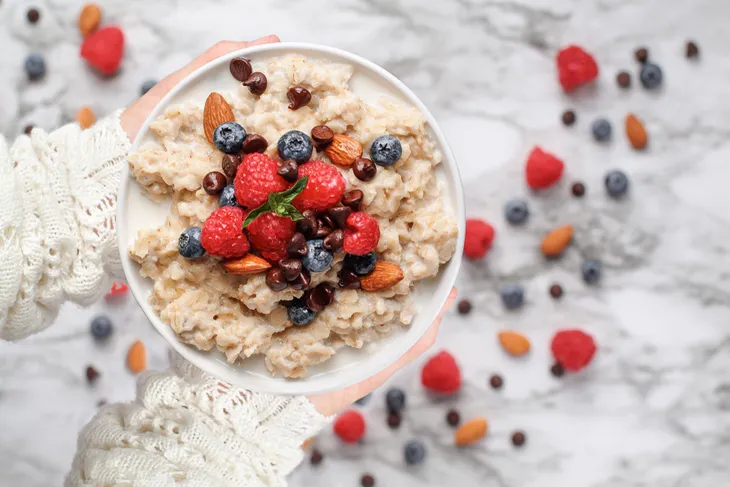- While there are no foods that can magically shed pounds, if we eat healthy foods and exercise regularly, losing weight should be easier.
- Look for foods that are low in calories, but also contain lots of fiber and protein. This helps keep us feeling full for longer which means no unnecessary snacking.
- Some of the best foods to eat are eggs, oatmeal, berries, celery, and lean proteins like fish.
The dream is to eat as much food as we want without gaining any weight. Unfortunately, that’s not the reality (nor is it healthy)! For decades people have tried to solve the mystery about how to lose weight quickly and efficiently. What’s the secret?
The truth is, losing weight all comes down to the simple balance of calories in and calories burned. You need to eat healthy and do some form of exercise on a regular basis. However, there are some foods that we can eat that help us along the way. These foods aren’t zero calories, but they are pretty darn close. They also have other benefits like being packed with protein and fiber to keep us feeling full so that we don’t engage in any unnecessary snacking.
Cucumber
Crunch on some cucumbers all you want because this food is high in water content and low in calories! Obviously when looking to lose weight we need to limit the amount of calories we’re consuming. However, we still need to eat so it’s important to look for foods that are low in calories and preferably loaded with fiber so that we feel full.
This is where cucumber comes into play. It’s got the trifecta of benefits making it great for weight loss. It’s 95-percent water so it contains only 16-calories per cup, and it’s loaded with fiber, says Mashed. We should note, don’t cut the skin off as this is where most of the nutrients are.
Popcorn
You might be surprised to see popcorn on this list, but hear us out! We don’t suggest eating lots of popcorn when trying to lose weight, but if you’re on a weight loss journey and in need of a snack, we recommend reaching for a bowl of popcorn over chips or candy. WebMD assures that popcorn actually has a good amount of fiber and can be a low calories snack.
The key with popcorn is to not put any butter, oil, or seasoning on it. Avoid purchasing the pre-packaged microwave bags. Instead, buy some kernels and make some homemade popcorn on the stove. It will help satisfy any snacking urges and leave you with a full tummy. “Part of the reason may be the air that puffs it up when it pops,” writes WebMD. It takes up more room in our stomach and helps us feel full for longer.
Celery
Similar to cucumbers, celery is a seriously low calorie snack. Without adding any toppings or dippings like peanut butter or cheese, a single cup of celery is only 16-calories! This is likely because it’s mostly made of water. It’s about 95-percent water.
Mashed refers to it as having a trifecta of benefits thanks to the low calorie count, high water content, and good amount of fiber. There’s about 2-grams of fiber per cup, says Mashed. So, not only are we barely eating any calories, but it still somehow leaves us feeling nice and full.
Soup
Soups are made up of mostly liquid which right from the get-go makes them less calories than other foods. Be careful with soup because some pre-packaged soups contain a lot of salt which is where they can get quite unhealthy and actually lead to weight gain.
The best thing to do is make soup from scratch. You can make it without salt (or very little), and load it up with vegetables to make it nice and fulfilling. In addition to salt, WebMD warns to look for broth based soups, like vegetable, chicken, or beef. Avoid any cream based soups because they will have more calories.
Eggs
There’s a reason lots of people eat eggs for breakfast — they’re versatile, fulfilling, and let’s face it, they’re downright tasty! People who are looking to eliminate unnecessary snacking and eat whole, nutritious foods during their meals should eat foods like eggs. This will do the trick to ease hunger much better than a bowl of sugary cereal.
Eggs have very few calories. Around 78-calories in a large, hard-boiled egg, says WebMD. And they contain lots of protein. “They’re so satisfying that they could help you eat less during the day if you have them for breakfast, especially if you’re overweight,” writes the source.
Cottage Cheese
Remember cottage cheese? I feel like adults don’t eat this food much when they get older but it’s actually a great substitute for people who don’t like eggs. It’s low on calories and works wonders for satisfying your appetite. According to Healthline, 1-cup of low-fat cottage cheese contains 163-calories and about 28-grams of protein.
Similar to many other foods on this list, it’s the protein that makes it a great option because it leaves people feeling nice and full. “Multiple studies demonstrate that increasing your protein intake from foods like cottage cheese can decrease appetite and hunger levels,” writes Healthline.
Kale
Kale is often touted as being a superfood because it’s so packed full of nutrients that contribute to our overall health. In addition to that, Mashed notes that it’s also high in fiber and protein. This is one food we would say — eat as much as your heart desires! While you’d likely get sick of it, you won’t gain much weight from an extra serving of kale.
Mashed points out that 1-cup of kale adds up to only 33-calories and each bite is loaded with antioxidants. Don’t feel like eating a salad? Blend some kale into a morning smoothie or bake them in the oven and make some kale chips!
Beans
You probably wouldn’t have thought to eat beans for weight loss, but WebMD points out that people who eat beans are often more satisfied between meals. And when we’re actually satisfied from the food we eat, we eat less in a day. “Over the long term, this may translate into less body fat and a healthier weight,” writes the source.
Beans are full of protein and fiber, but actually low on the calorie scale making them the perfect snack or food for someone looking to lose weight.
Fish
When we think of adding a protein to our meal, we often think of chicken, beef, or even turkey. But fish is actually one of the best options because not only is it a lean protein, it also contains heart-healthy fats, notes Healthline.
The nutrients and calorie count for fish depends on the type. For example, a 3-ounce serving of cod has 13-grams of protein and less than 60-calories. “Some research points out that increasing protein intake can decrease appetite and reduce levels of ghrelin, the hormone that stimulates hunger,” writes the source.
Healthline also points out that low calorie fish options are cod and halibut which can be great for weight loss, but the more fatty fish like salmon and mackerel will provide omega-3 fatty acids which are great for overall health.
Quinoa
We often don’t associate grains with weight loss because we immediately think of carbs, carbs, and more carbs. Just hear us out for a minute…quinoa is actually really high in fiber. In fact, it’s got more fiber than most other grains. What we’ve learned about fiber is that it helps keep us full which means we eat less. This translates into consuming less calories.
Not only does it have lots of fiber, but WebMD points out that it also contains protein. When cooking a meal, instead of adding white or brown rice, consider swapping these sides for some quinoa instead.
Berries
Nobody would argue with eating more berries! This food is sweet and delicious. The best berries to eat for weight loss are strawberries, blueberries, raspberries, and blackberries. They are all loaded with vitamins, minerals, and antioxidants that contribute to overall health, says Healthline.
For someone who’s looking to manage their weight or currently trying to lose weight, berries are a good snack. One cup is only 86-calories, but also 3.6-grams of fiber. “Berries are also a great source of pectin, a type of dietary fiber that has been shown to slow stomach emptying and increase feelings of fullness in human and animal studies,” writes Healthline.
Oatmeal
A popular breakfast staple, oatmeal is not only tasty, but low calorie and healthy! Eating a bowl of oatmeal in the morning helps keep us full until our next meal which is key for managing weight. This is all thanks to its fiber which according to WebMD, fills us up and allows the body to absorb the nutrients more slowly. This keeps our energy steady.
So why is this good? Well, if we nourish our body with foods that are actually fulfilling, like oatmeal, we’re less inclined to do any unnecessary snacking throughout the day. As a result, we avoid gaining weight and are only eating what we need to.
